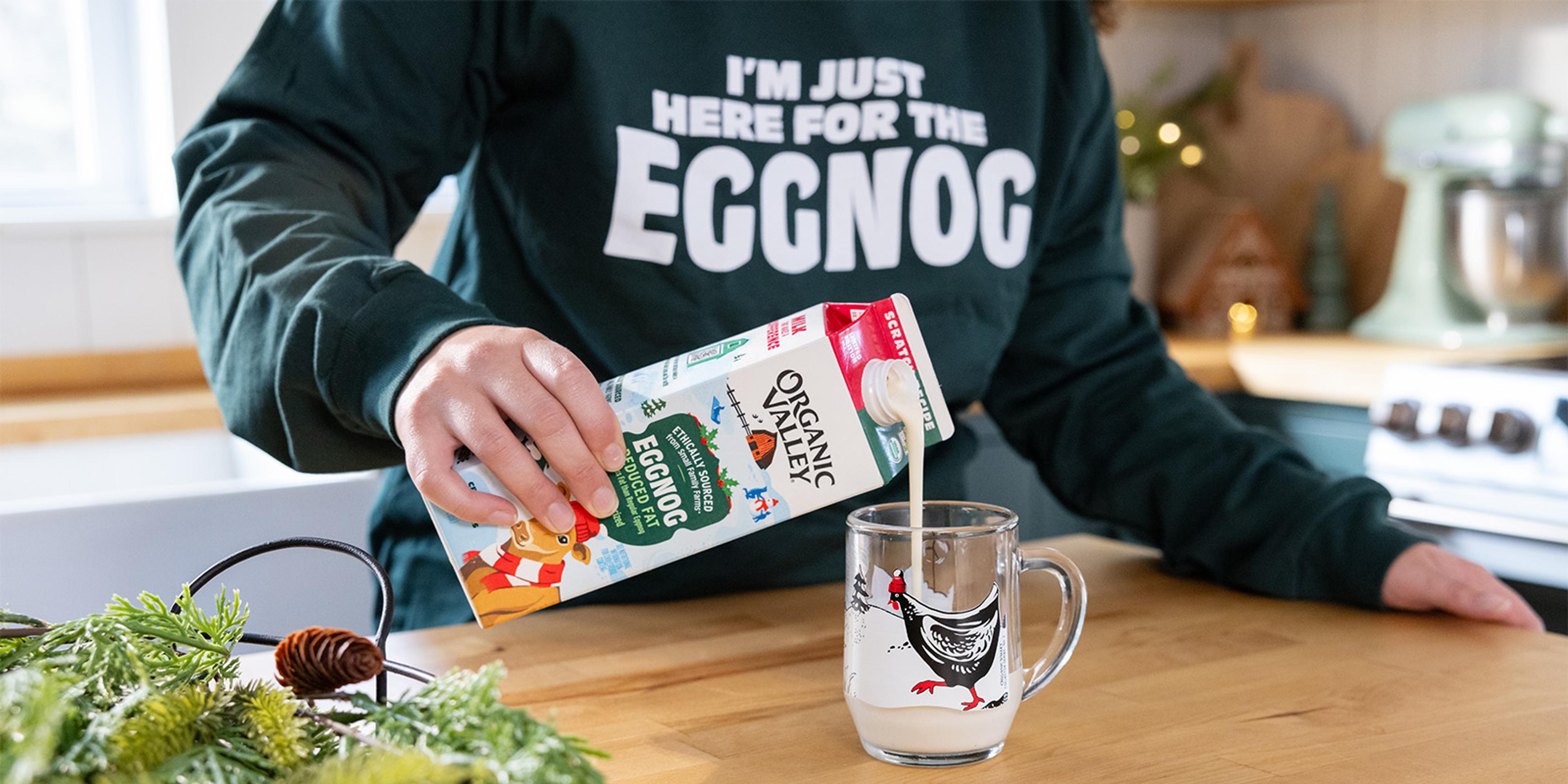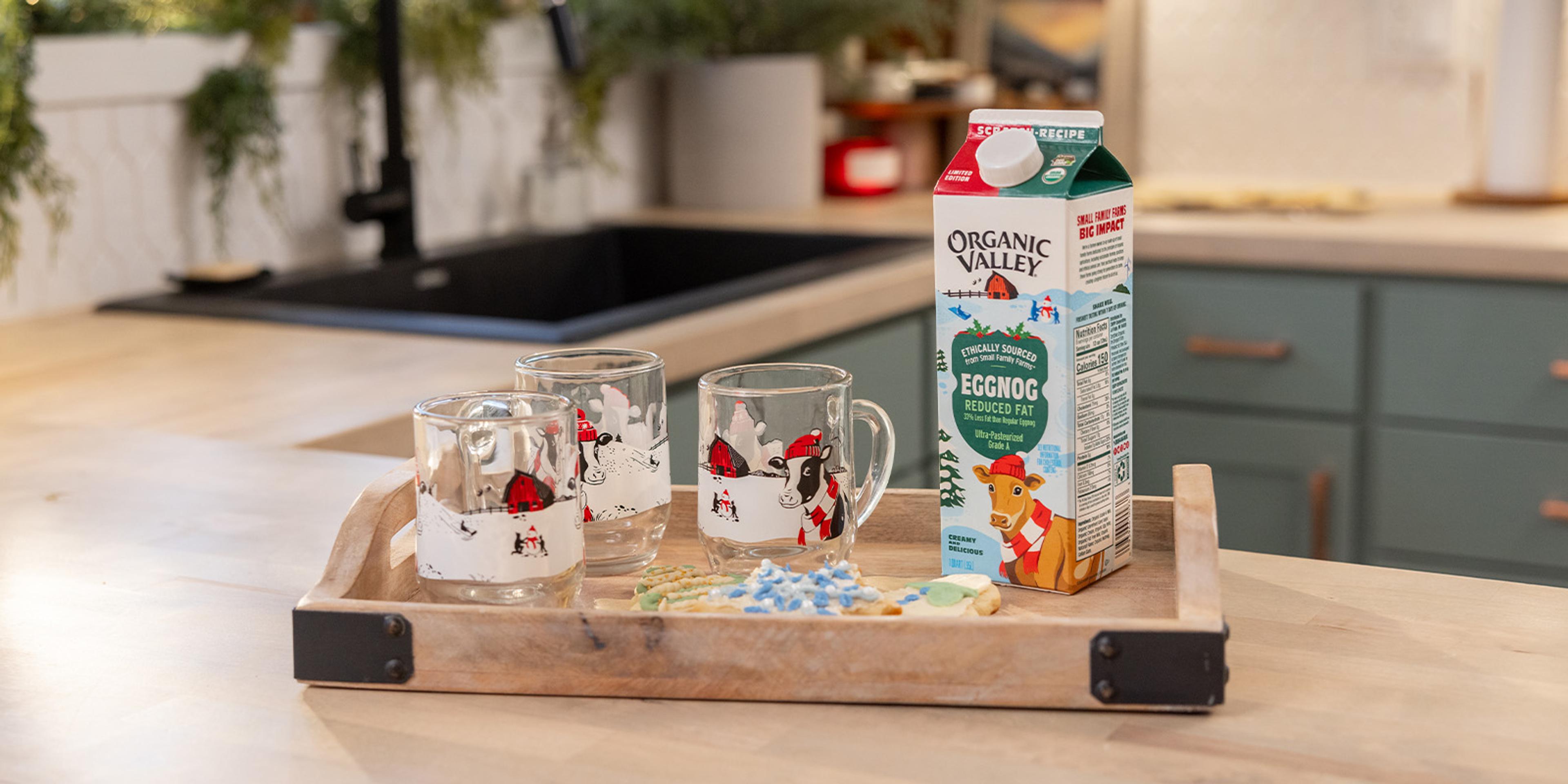
Food
Learn What Is In Eggnog and Other Enlightening Eggnog Attributes
Eggnog season is finally here and I, for one, am thrilled. While there are many seasonal beverages that make us feel warm and fuzzy, getting us into the holiday spirit — mulled wine, hot cocoa, warm apple cider — eggnog is really something special. It is sweet and spiced in perfect balance.
Everyone in my house is ready to crack the first carton of eggnog promptly after Halloween ends, and I don’t blame them. What’s not to love about this creamy, rich drink that puts you right into the holiday spirit? Let’s dive into the attributes of this seasonal delight.
What Is Eggnog Made Of?
Eggnog is a traditional holiday drink originating in the United Kingdom that has historically been consumed during the winter as part of holiday festivities. Traditional eggnog ingredients are eggs, milk, cream and sugar.
The term “nog” comes from Old English, meaning “strong ale,” as eggnog was originally an alcoholic beverage, but it is now often found without alcohol. It has also been called “milk punch” or “egg milk punch.” Though it comes from across the pond, it has very much found a home here in the U.S. and can be found on holiday tables all over the country. Eggnog is typically served cold, though it can be warmed up to help you stay cozy on a cold night.
Organic Valley’s eggnog is a made-from-scratch recipe. It stands out from the crowd when it comes to store-bought eggnog, as it is USDA certified organic and non-GMO. The milk in Organic Valley® eggnog comes from pasture-raised cows, and it includes organic free-range eggs, organic sugar and delicious organic spices.
It doesn’t contain some of the not-so-great ingredients in other eggnogs found on the store shelves, such as high-fructose corn syrup and artificial flavors or colors, making it a preferable choice when treating yourself this season.
Does Eggnog Have Health Benefits?
Is eggnog a sweet, decadent treat to be enjoyed in moderation? Absolutely. Does it also have some health benefits? Of course! Because Organic Valley’s eggnog is made with organic, pasture-raised milk, it is a source of protein, vitamin B12, potassium and calcium.
Milk from pasture-raised cows has higher levels of healthy fats, including omega-3 fatty acids and CLA (conjugated linoleic acid), according to a study. Organic Valley’s eggnog also contains pastured egg yolks, which offer healthy fats and vitamins, including vitamins A and K2.

Why Is It OK to Drink Eggnog?
Eggnog is made with eggs, so how can it be safe to drink? Organic Valley’s eggnog is safe to drink because it is ultra-pasteurized. Pasteurization is the process of heating a product to kill pathogenic bacteria that may be present, without altering the flavor. Thus, the eggs in Organic Valley® eggnog are no longer raw, making it safe for all to enjoy and still totally delicious.
Many homemade versions of eggnog are made with raw eggs, making it a less desirable choice for some high-risk populations, such as pregnant women or immunocompromised individuals.
Fresh and Not Frozen
While you can use eggnog in many dishes, and can often swap eggnog in for milk in many recipes, it is best consumed fresh and not frozen.
Simply sip a glass of nog anytime of day, or add it to other beverages, such as hot or cold coffee for a delicious and festive way to wake up in the morning. Eggnog can also be used in recipes such as panna cotta, French toast, cookies and more.
Is Eggnog an Alcoholic Drink?
Organic Valley Reduced Fat Eggnog™ does not contain alcohol. Eggnog was an alcoholic drink at its origin, with brandy, whiskey, rum or bourbon added to the mixture.
The inclusion of spirits helped make the eggnog safer to drink. Eggnog has traditionally been made with raw eggs and the high alcohol content acted as an antimicrobial, as well as a preservative prior to refrigeration.
Like Organic Valley® eggnog, many store-bought eggnogs are alcohol-free (always check the label, of course). While Organic Valley’s eggnog does not contain alcohol, you can always add a splash of your spirit of choice when you get it home, or serve up a trendy eggnog mocktail to your guests who chose not to imbibe.
Can Kids Drink Eggnog?
Organic Valley® eggnog is a safe, tasty beverage for children who are old enough to drink cows’ milk (typically those over 1 year of age) who are not lactose intolerant. Of course, it is a sweet treat, so keep eggnog as part of a healthy, balanced diet. (I know this can be hard to do, parents!)
Kiddos can enjoy eggnog during holiday parties for a festive beverage option, or serve it with breakfast for a special seasonal twist on the morning meal. Be sure to pair sweet treats like eggnog with a good source of protein, such as eggs or sausage, to keep kids fueled with plenty of sustained energy and the nutrition they need to thrive through their day.
Organic Valley® eggnog is pasteurized and does not contain alcohol, making it a safe choice for kids to drink. Since some brands of eggnog do contain alcohol, parents, be safe and read labels before serving eggnog to your children.
The Organic Eggnog Difference
Organic Valley’s eggnog tastes great and is certified organic, making it free of antibiotics, synthetic hormones, toxic pesticides and GMOs. The organic milk is produced on small organic family farms committed to organic agriculture and producing nourishing food in a way that is good for farmers, the animals they care for and the Earth.
Organic Valley’s eggnog is a great addition to the table this holiday season, but it is just that: seasonal, available only from September until it’s gone. It is not here forever, so get it while it lasts! Keep it cold, shake it well and serve it often. Let’s raise a glass to the holiday season, celebrating with family, friends and a glass of Organic Valley® eggnog!
Originally from Kansas City, Missouri, Laura Poe Mathes, R.D., moved all over the U.S. before figuring out that she is a country girl at heart, settling down in the Driftless Region of southwest Wisconsin with her husband. She is a private practice dietitian, functional movement coach, writer and speaker on health and traditional cooking techniques, such as fermentation and cooking with organ meats. She loves to spend time with her family and be in nature. Learn more about her at Viroqua Nutrition Counseling and on her recipe blog, Brine and Broth.
Related Articles
Tags:
- holidays
















